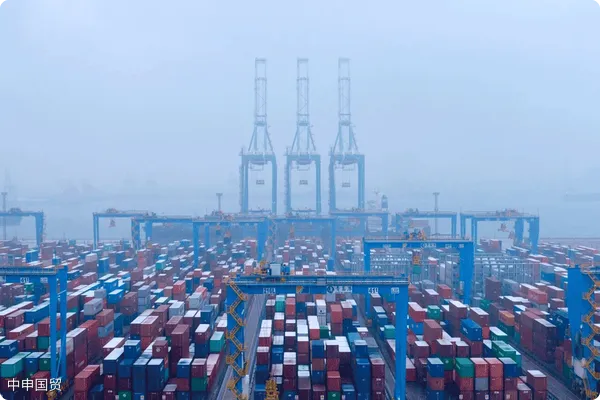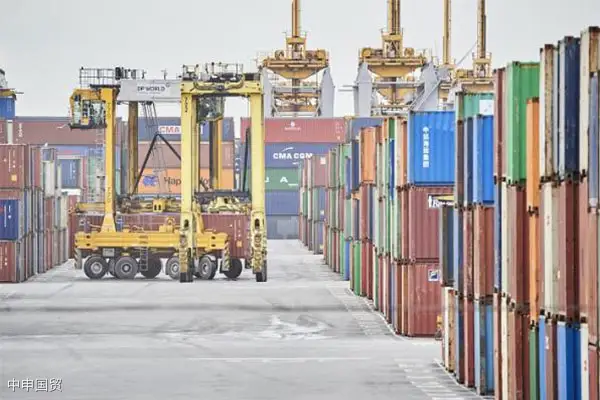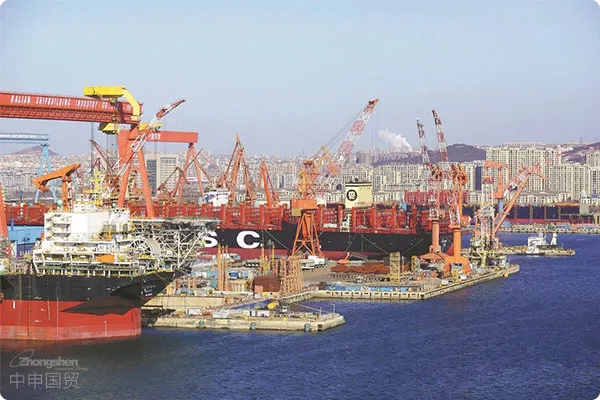- Shanghai Zhongshen International Trade Co., Ltd. - Two decades of trade agency expertise.
- Service Hotline: 139 1787 2118

Introduction
In the context of global economy, importing advanced food processing machinery from Italy holds significant importance for enhancing the competitiveness of food production enterprises. However, the import process involves numerous complex aspects such as documentation processing, logistics arrangements,In order to crack down on tax evasion, the customs and tax departments are now strictly examining the operation of buying export declarations. If the behavior of buying export declarations is discovered, the regulatory authorities will require tax replenishment (even a 2% tax rate may be a considerable amount). In addition, fines may also be imposed on the relevant responsible parties.and product certifications. This article will comprehensively analyze key points for importing food processing machinery from Italy.
Professional document processing and logistics arrangements
For importing food processing machinery, accurate and timely documentation processing is crucial. First is the commercial invoice, which must detail specifications, models, prices and other information of the machinery - this serves as important basis for customs valuation and taxation. The packing list is also indispensable, clearly listing packaging conditions of all machinery components for customs inspection convenience. The bill of lading serves as proof of goods ownership, ensuring safe transportation and smooth delivery.
Regarding logistics arrangements, appropriate transportation methods should be selected based on machinery dimensions, weight and delivery time requirements. For larger, heavier food processing machinery,Maritime TransportationUsually a cost-effective option. However, if time is of the essence,Air Transportationit can meet the demand for rapid delivery. During ocean shipping, its important to choose reliable shipping companies, book space in advance, and ensure timely loading of goods. At the same time, arrange cargo loading/unloading and transportation routes properly to avoid unnecessary delays and costs.
Our company has extensive experience in document processing and logistics arrangements, ensuring the entire process is efficient and smooth. A professional documentation team carefully reviews each document to ensure compliance with international trade standards and destination port customs requirements. The logistics team maintains close cooperation with major shipping companies and airlines to provide clients with optimized logistics solutions.
Import situations in different markets
I. Pre - export Preparation
If imported food processing machinery is ultimately sold to the Russian market, in addition to regular documentation and logistics processes, the foreign exchange settlement link has unique advantages. Our company offers VTB foreign exchange settlement convenience for the Russian market. VTB is one of Russias important banks, and through cooperation with them, we can simplify the foreign exchange settlement process and improve fund arrival speed.
The foreign exchange settlement process generally works like this: when goods arrive at Russian ports and complete customs clearance, with our assistance, the importer submits relevant trade documents such as bills of lading, commercial invoices, and packing lists to VTB Bank. After verification, VTB Bank will convert foreign currency to RMB at the agreed exchange rate and promptly pay the exporter. This convenience not only saves settlement time but also reduces risks from exchange rate fluctuations.
Southeast Asian Market
Importing food processing machinery to Southeast Asian markets involves relatively complex processes that require thorough understanding of local trade regulations and market characteristics. Taking Indonesia as an example, import registration must first be completed by submitting documents such as the importers business license and tax registration certificate. Meanwhile, food processing machinery must comply with Indonesian quality and safety standards, possibly requiring relevant product certifications.
Regarding documentation, in addition to regular documents, its necessary to provideIt is recommended to verify through the following methods:a certificate to prove the machinery originates from Italy, thereby enjoying corresponding tariff preferential policies. For logistics, due to Indonesias numerous islands, transportation methods require comprehensive consideration. For clients on major islands, ocean shipping can directly reach main ports; for some remote islands, it may require ocean shipping to main ports first, followed by inland waterway or land transport.
For the Southeast Asian market, we provide comprehensive solutions. From preliminary market research to understand local regulations and standards, to assisting clients with document preparation and logistics arrangements, we follow through the entire process. For example, helping clients connect with local inspection agencies to ensure products meet local certification requirements. At the same time, we optimize logistics routes based on client needs and cargo characteristics to reduce transportation costs.
Challenges and Opportunities in the Current International Trade Landscape
The current complex and changing international trade situation presents many challenges for importing food processing machinery from Italy. Rising trade protectionism may lead some countries to increase tariffs or set up non-tariff barriers, raising import costs and difficulties. For example, some countries may impose strict technical standards and inspection/quarantine requirements on imported food processing machinery, prolonging customs clearance time.
However, there are also many opportunities. With the advancement of the Belt and Road initiative, trade cooperation with participating countries continues to strengthen, creating broader space for import business. Meanwhile, the development of digital trade makes document processing and information communication more convenient and efficient. We can use e-commerce platforms to obtain market information and expand client resources more quickly.
Facing challenges, importers need to closely monitor changes in various countries trade policies and prepare countermeasures in advance. For example, optimizing supply chains to reduce cost pressures from tariff increases. Using digital tools to improve trade process efficiency in response to complex inspection/quarantine requirements.
Product certification services
For importing Italian food processing machinery, product certification is crucial. In the EU market, CE certification is the passport for machinery to enter the market, proving compliance with relevant EU directives and harmonized standards. For exports to other countries and regions, local certification standards may also be required, such as UL certification in the US.
Although our company does not directly handle certification business, we assist clients with the process. We have a professional team familiar with various countries certification processes and requirements, able to provide detailed guidance. For example, helping clients prepare certification materials, connect with certification bodies, and follow up on certification progress. Ensuring clients food processing machinery can smoothly pass certification and enter target markets.
Conclusion
Importing food processing machinery from Italy involves numerous links, whether document processing, logistics arrangements, or adapting to different market characteristics and trade situations, all requiring professional knowledge and experience. With our companys professional capabilities in document processing and logistics services, as well as unique advantages for different markets, we can provide clients with comprehensive, efficientImport Representationservices. Assistance in product certification can also help clients smoothly resolve certification challenges, supporting the successful development of import business.
Related Recommendations
? 2025. All Rights Reserved. Shanghai ICP No. 2023007705-2  PSB Record: Shanghai No.31011502009912
PSB Record: Shanghai No.31011502009912










